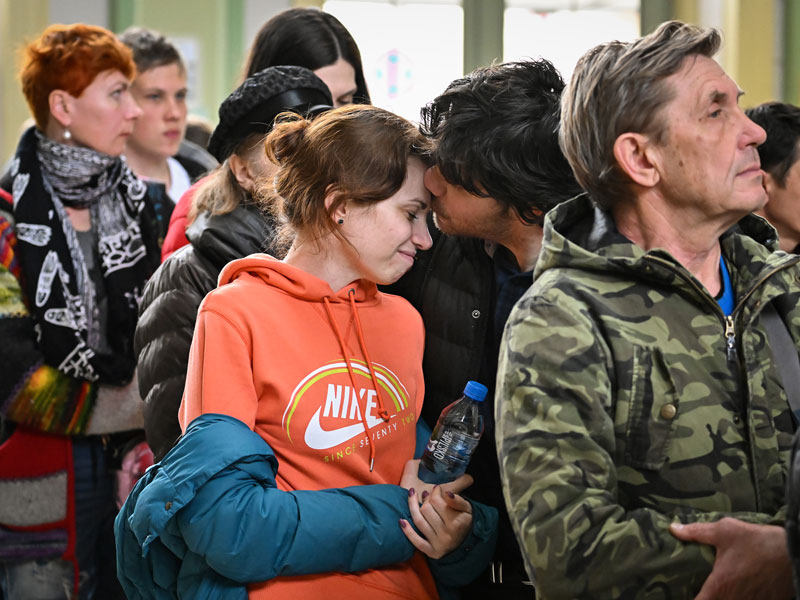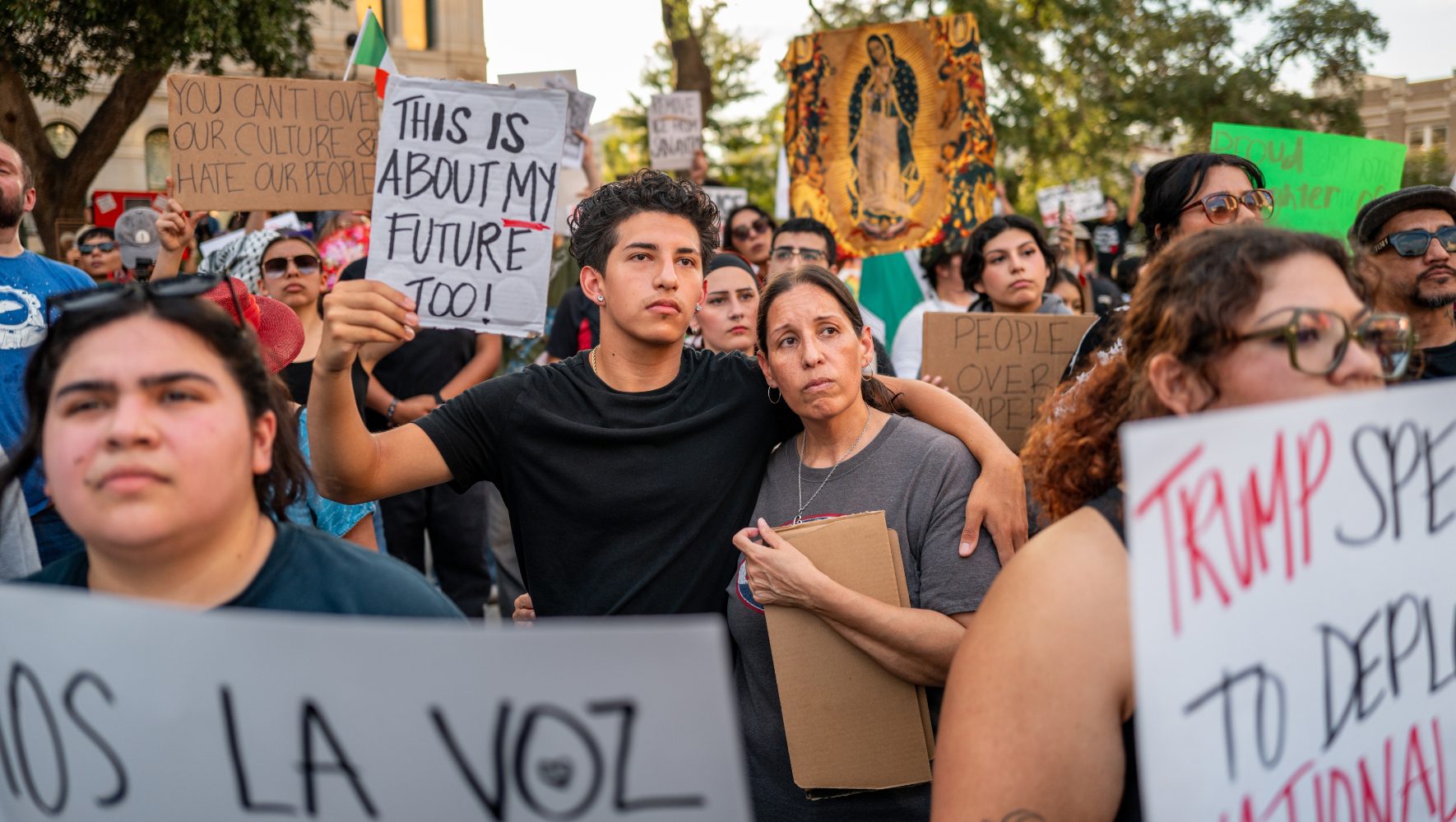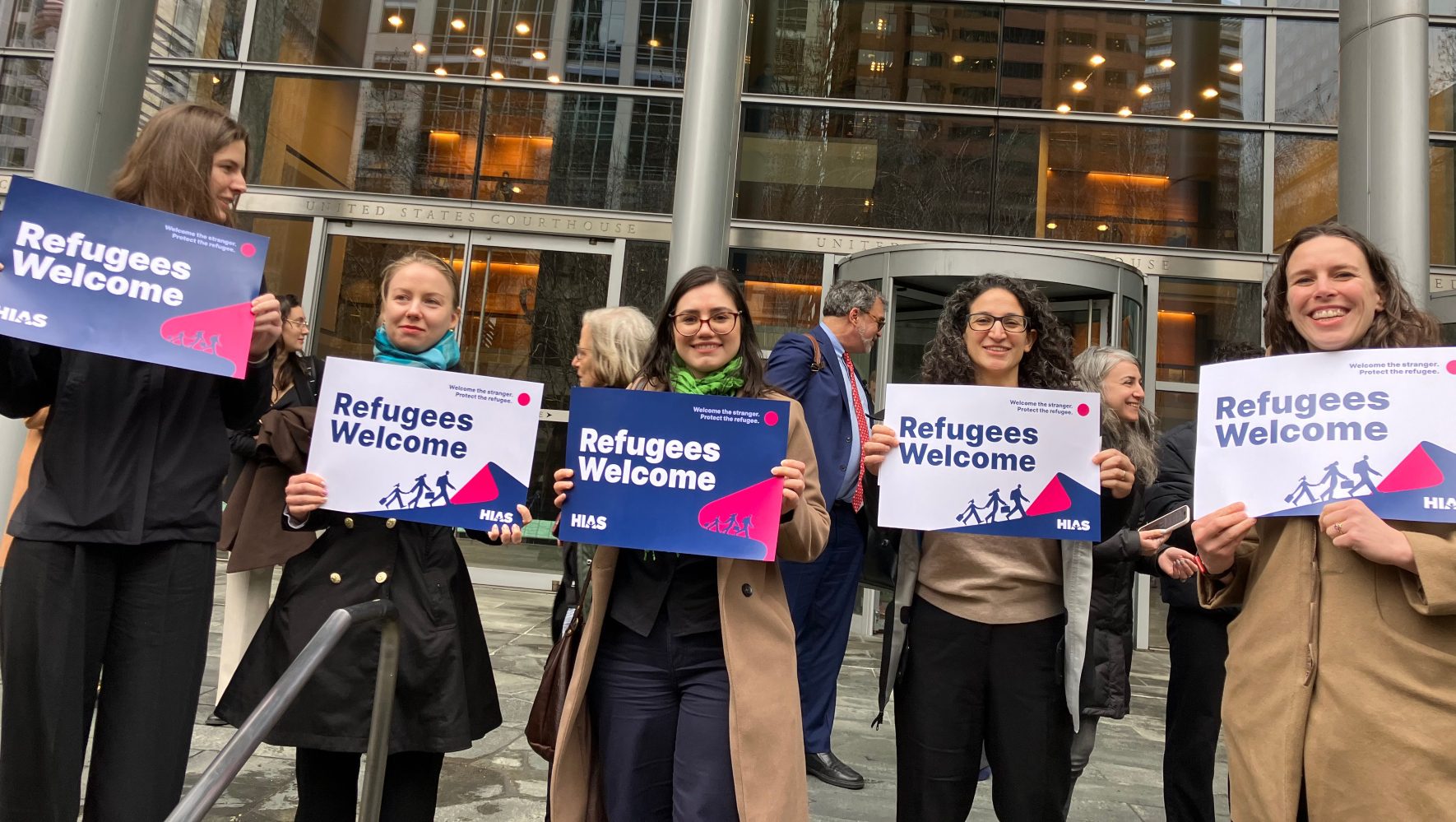This Passover, European Jews Step up to Welcome Refugees
By Katharine Woolrych, HIAS Europe Advocacy Officer
Apr 13, 2022

People pass through the Przemysl train station in Poland after fleeing from Ukraine on April 07, 2022.
(Jeff J Mitchell/Getty Images)
Every year on Passover, Jews and guests at their Seder tables are asked to imagine as if they themselves were brought out of slavery unto freedom. But this year, things feel so much closer to home for European Jews than in years past.
As millions of Ukrainians seek sanctuary in Europe from one of the worst humanitarian crises of this generation, people in countries neighboring Ukraine along with Western European Jewish groups are preparing to welcome refugees into their own communities. Last month, 75 Jewish community representatives from 18 countries met in Paris to learn from HIAS’ expertise in resettling and integrating refugees at the local level.
HIAS Europe also has developed special resources forJewish communities eager to welcome refugees through community sponsorship. The Gishur project — coordinated by HIAS Europe in partnership with CEJI and Paideia — makes available activities and tools that facilitate dialogue and promote mutual understanding between Jews and refugees.
Since the beginning of the Ukraine crisis, Jewish groups across Eastern Europe have responded by providing critical humanitarian support to scores of refugees, including advice at border crossings, facilitating transport, offering temporary accommodation, and delivering vital aid to people fleeing.
But as the war continues, the capacity of frontline communities to host refugees is being tested, and there is still uncertainty facing both those who are fleeing and the groups that are readying to host them.
At the Paris training, HIAS staff presented the Welcome Circle model, which has been employed in the U.S. to resettle Afghans at the community level. Under this program, communities develop welcome plans and provide comprehensive, localized support. HIAS trainers emphasized the importance of ensuring that the physical and emotional safety is addressed when working with refugees, and noted Jewish communities will have to navigate many challenges, such as matching newcomers with communities, legal considerations, managing cross-cultural communication, and providing sufficient financial support.
This model is seen as providing a critical tool for communities in Western Europe as they step up to cope with refugee arrivals. HIAS is helping on this part, by providing funding to communities in Poland, Moldova, and Slovakia, and placing relocation experts in four countries to coordinate relocation to Western Europe.
A happy byproduct of the ongoing difficult situation is that the refugee crisis has been a source of unity among sometimes disparate Jewish communities. “Now, we all have the same common goal," explained Antonia Grynberg, Taglit and Engagement Coordinator for Hillel in Warsaw.
The Paris training, a collaboration among HIAS Europe, FSJU (Fonds Social Juif Unifié), EJC (European Jewish Congress), and ECJC (European Council of Jewish Communities), exemplified that togetherness. ECJC’s vice president David Revcolevschi remarked he had “never seen the communities so united.”
As the Jewish communities prepare for their new roles as hosts, and prepare for Passover, the story of historical exodus has particular resonance in Brussels, where HIAS Europe is organizing a refugee Seder. Set to begin on Friday April 15 at sundown, the Seder will be run by the European Jewish Community Center and guests will include Ukrainian refugees. Everyone will use the HIAS Haggadah as well as the Passover guide, a versatile new tool for Jewish community leaders, rabbis, youth leaders and activists organizing local interfaith holiday celebrations.
HIAS Europe has also funded the printing and distribution of 4,000 Russian language haggadot to be distributed to Ukrainian refugees across Europe.
For Jewish refugees fleeing Ukraine to settle in new locations, this Passover will be like no other. Ilan Cohn, Director of HIAS Europe, nonetheless finds hope amid the adversity. “While it’s heart-wrenching to see the lives of Ukrainians shifting on their axis, the solidarity shown by European Jews demonstrates a huge capacity in our homes, and in our hearts, for welcome,” he said.



